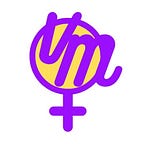Review of The Beauty Myth by Naomi Wolf
This is one of the most known feminist books, and to be honest I’m not sure why it took me so long to read it. Maybe I was afraid to face my own truth. Beauty is something I, as much as any other woman, have suffered for and chased throughout my entire life. Here are my thoughts on it…
This book was written in 1991 and it is still very much alive and relevant. We have the boom of Instagram influencers, the cross-fit phenomenon, plastic surgeries have become mainstream, genital mutilation is still a reality, and so is colourism. The book is still extremely relevant and helpful to women who struggle with the need to reach perfection.
The new feminist wave is very much attempting to break with this imprisoning worship or beauty, we see a focus on body positivity, my body my rules, black is beautiful, trans visibility, Me Too, gender-based violence, etc. Even in fashion, we see thick eyebrows, separated teeth, vitiligo, plus-sized, hairy underarms, gender deviance. This is an incredible backlash to the dictatorial beauty standards that women used to live under in the 90s and 2000s. The interesting thing is that the beauty myth seems to be an ever-adapting machine that takes the “different is good” and turns it into a fashion trend, where every influencer also wants to show off how different and self-loving they are with their neon-coloured clothes, Dua Lipa hair, lip enhancement jobs and big white sneakers. It’s crazy to think that even a movement for the end of oppressive fashion trends becomes a trend itself. This has lots to do with what Naomi calls “conscious market manipulation”, where industries grow from unconscious anxieties. She warned us about the dangers of including all women in marketing campaigns. She says “As long as the definition of ‘beauty’ comes from outside women, we will continue to be manipulated by it”, and she’s very right about that.
Fast forward to the end, Naomi is trying to picture a world where there is no beauty oppression. She claims for dismantling the “Professional Beauty Qualification” by unionising against harassment, age discrimination, enforced surgery, double standards for appearance. She asks for law suits, insists on equality, asks us to tell our stories. It makes me quite happy to realise that her voice was heard and so much progress was made in this regard.
I did miss some concrete scientific evidence in her writing, seemed to me that her arguments were mainly based on personal experience and some facts here and there. This does not undermine the importance of her work, however, we need to understand that this is not academic work and therefore cannot be perceived as the absolute truth about the relationship all people have with beauty. That being said, due to her relying mainly on personal experience and the momentum in which the book was written, I missed a more multi-cultural approach from her. The book focused mainly on Western, white middle-class heteronormative women, and I did not find references to different relationships to the beauty myth coming from different realities. Aesthetic relativism is a long-time given for anthropologists, we know that beauty has different meanings in different cultures. Naomi’s notion of aesthetics can be quite different in different contexts, therefore generalisation is a very dangerous thing to do regarding this concept. There are so many more layers to it that weren’t mentioned by Naomi that makes the book quite superficial in its attempt to discuss what beauty does to society.
This is not surprisingly: beauty, fashion and cosmetics are founded in the Western capitalist idea of marketing and consumption. All around the world, artists, women and designers shape their aesthetics to fit the catwalks in Milan and Paris. This industry is moved by globalisation and modernity, and as post-colonial studies confirm, “modernity” is an intrinsically Eurocentric concept. There is no doubt that what we call “beauty” would come from an Eurocentric point of view, so we can expect 26-year-old Naomi to think of “beauty” within this framework and not expand her understanding.
I guess my point is a wake-up call to decolonise “beauty”. Let go of this concept, let go of the overwhelming pressure of being beautiful and demanding beauty in others. Beauty is emprisonment. It’s a Western oppressive concept that keeps us consuming and competing against each other. If beauty is in the eye of the beholder, take control of the power you give to mainstream beauty.
